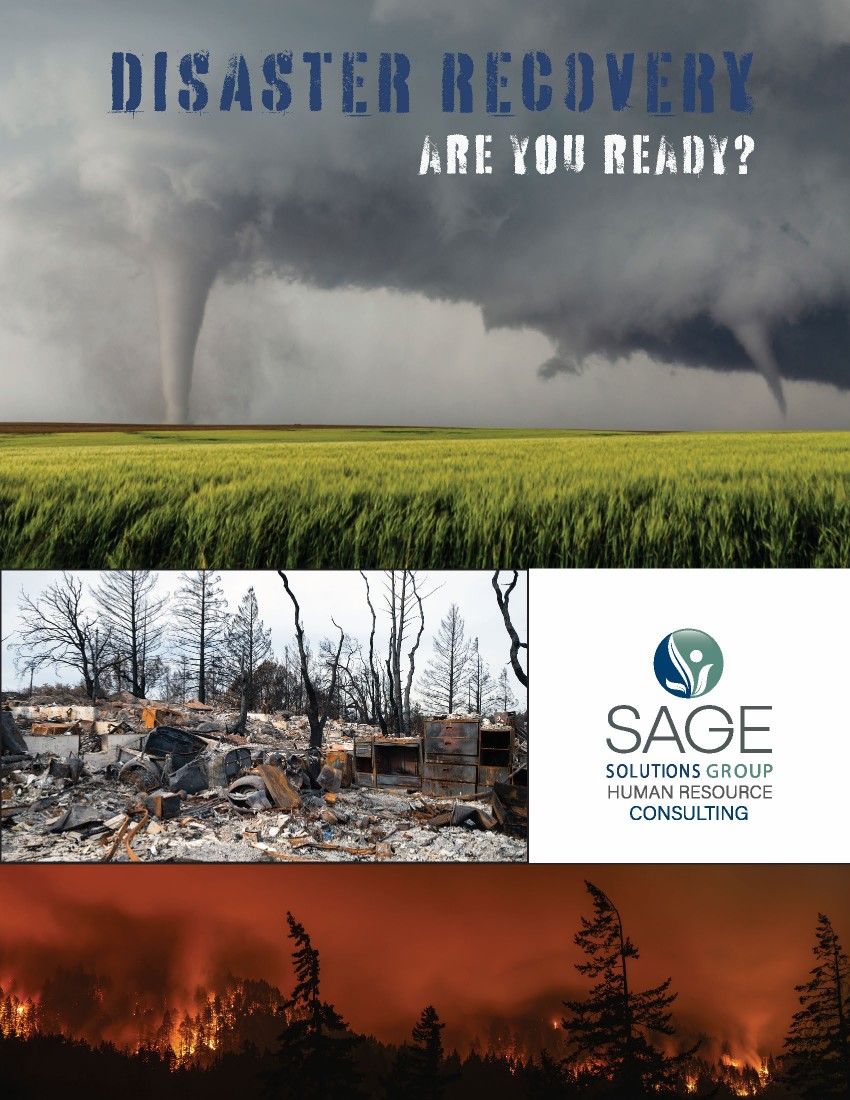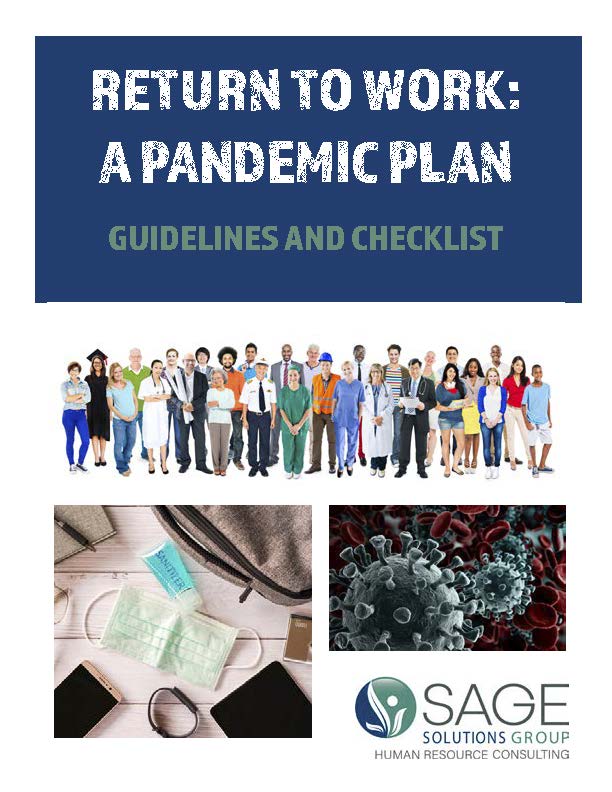A Pandemic Plan: Is Your Business Prepared for Disaster Recovery?
The COVID-19 Pandemic is demonstrating just how critical disaster preparedness is for small to medium sized businesses.
If your company needs help in developing a plan to navigate these tough times, Sage has solutions!
Disasters come in many forms, floods, fires, power out-ages, pandemics... Luckily, they tend to be infrequent, which is why we don't think to plan ahead for them. During this COVID-19 pandemic, employers are facing some difficult decisions fast. To keep your business running during and after a crisis you need many things, the most of which is a plan.

As Human Resource Consultants, Sage Solutions Group recommends that organizations consider a plan that features three key areas:
1. EMPLOYEE SECURITY: ensure you understand and support your employee's needs, so they are prepared and able to work.
In dire times, Sage recommends addressing employee's needs from the perspective of Maslow's hierarchy: Physiological Needs, Safety & Security Needs and Social Needs. When there are barriers to the most basic of necessities, how can you as an employer assist?
- Provide time off for urgent appointments
- Set up online resources like "doctors on demand"
- Provide on-site vaccinations
- Change to weekly payroll or more frequent payroll
- Provide employees with access to your employee assistance plans regarding financial support
- When feasible, allow employees to work at home
- Help to problem solve employees concerns regarding child and/or elder care
- Have a communications team as part of a larger disaster plan, and ensure human resource professionals are part of that team
- Communicate early and often
- Ensure communications are fact based, and let employees know what you do and don't know
- Ensure you have various ways to reach your employees (text, email, social media, phone)
- Ensure that leadership is present and available to support your employees and answer questions. All too often, leadership heads for home leaving the other workers to wonder and worry.
2. EMPLOYER SURVIVAL: understand what you need to do as a business owner to survive the rough waters
- As part of the disaster plan, ensure there is access to critical employee data
- Determine what supplies do you need (hand sanitizer, water, cleaner, etc.)
- Develop daily cleaning protocols to keep employees and customers safe
- Redistribute responsibilities to ensure key aspects of the organization's operations continue to run
- Remember, under wage and hour laws, making changes to hours, or reducing pay to exempt employees could jeopardize that status
- Businesses will need ongoing cash flow to keep the doors open, purchase supplies, pay employees and the like
- Consider what is really necessary and remove or suspend what is not, for example, travel, expensive items, size of inventory, etc.
- In critical staff shortages, managers, supervisors and leadership may need to step into the void to keep the ship afloat
- Consider a "fortnight" program, where all employees are asked to take some amount of time off without pay until the business situation improves.
 3. BUSINESS CONTINUITY: a plan outlining the steps to take to resume your business.
3. BUSINESS CONTINUITY: a plan outlining the steps to take to resume your business.
- Determine and prepare for a cash burn while you are bringing back employees and customers; there is typically a 30-45 day lag from when you need to pay your employees to when you start generating revenue
- Look at the supplies needed to re-open or continue business
- Develop a list of Must Haves vs Would Like to Haves
- AS ALWAYS, IT IS CRITICAL TO KEEP ANY LAWS IN MIND WHEN MAKING ANY BUSINESS DECISIONS. HERE ARE A FEW TO CONSIDER: FMLA, ADA, OSHA, FLSA, DOL, ACA, COBRA, WARN, UA, Union Contracts, Local and state level paid medical leave acts (for example in Michigan we have PMLA)
- During a crisis, emergent bills may be passed. It is critical that you stay abreast of those changes
- Remind your customer's that you are open for business. Develop your marketing strategy, social media and website updates

To receive Sage Solutions Groups' Disaster Recovery- Are You Ready Guide, please fill out a request for information.
Practical, knowledgeable and timely help is just a phone-call away. For immediate assistance and a partner to navigate these difficult circumstances, call us at 734-855-7189.

